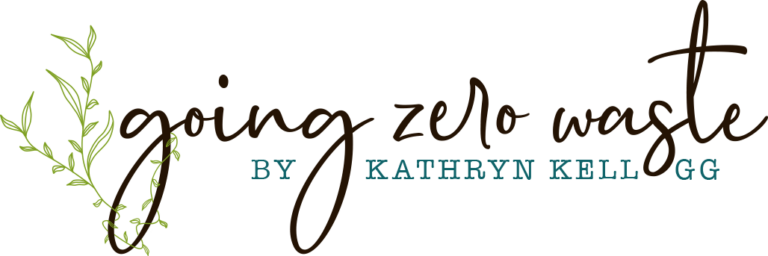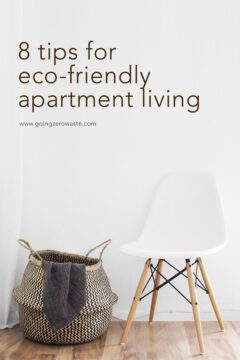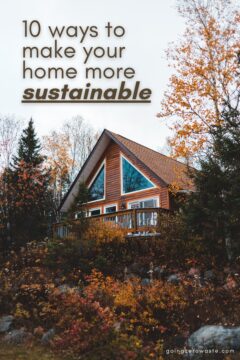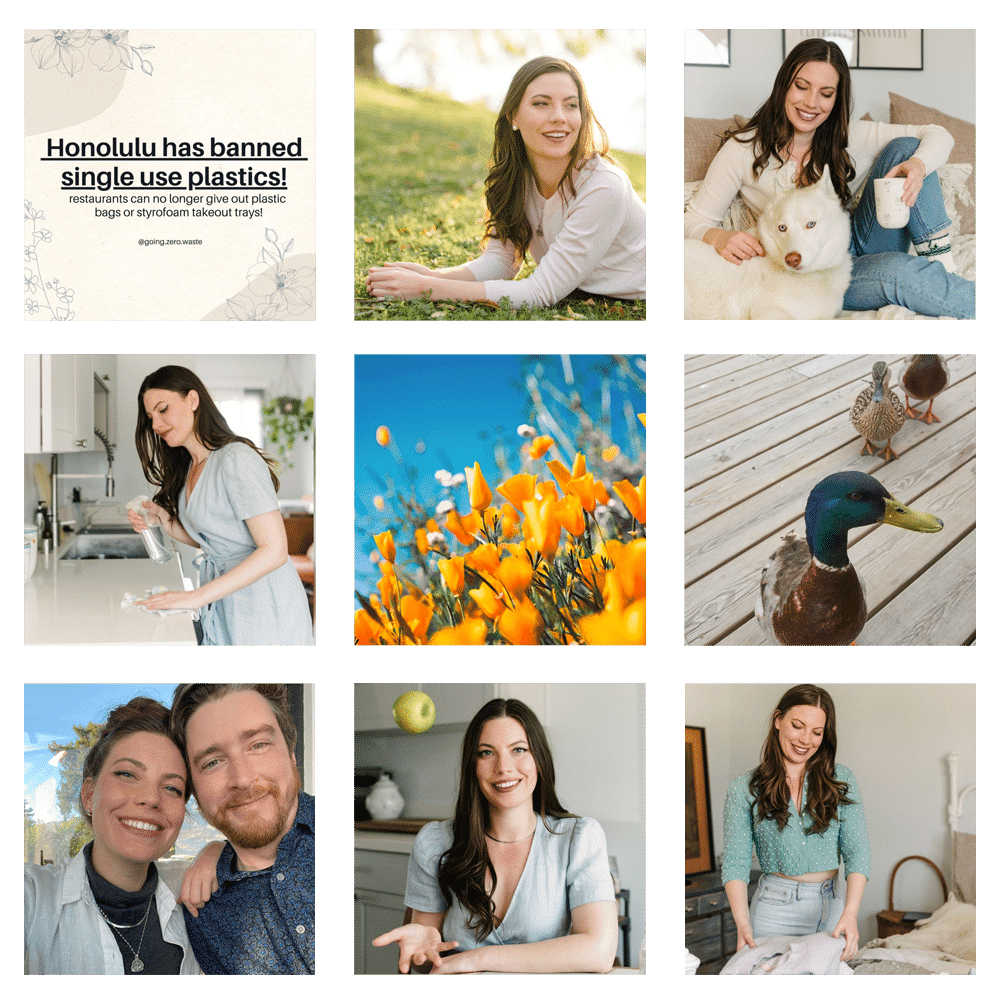Last Updated on November 22, 2021
“Sustainable living” — what does that actually mean? It’s going to look different depending on who you ask, but for me it involves a lot of unlearning. It’s about seeking out new knowledge, listening to different perspectives, and just doing the best I can.
Please remember, there’s no one size fits all. I think it’s easy to get discouraged in the beginning, and I used to get upset at myself because I didn’t feel like I was doing enough or was good enough at what I was doing. I just had SO much to learn because sustainability was completely new to me!
And, that’s OK! I’m still learning. For me it’s about building habits, doing my best, and remembering that larger systemic changes are vital!
Individual changes are important, but it’s also important for you to look at the bigger picture—to vote and make sure you’re calling your representative about important environmental legislation.
The truth about sustainable living is that it’s a series of choices you make everyday. Living this kind of life means consistently choosing options that have a positive impact on the environment, and sometimes that means shifting your mindset and challenging what you think is easy and convenient. Sometimes it’s a change of habits, awareness around your actions in relation to the planet, and making your voice heard in both business and politics.
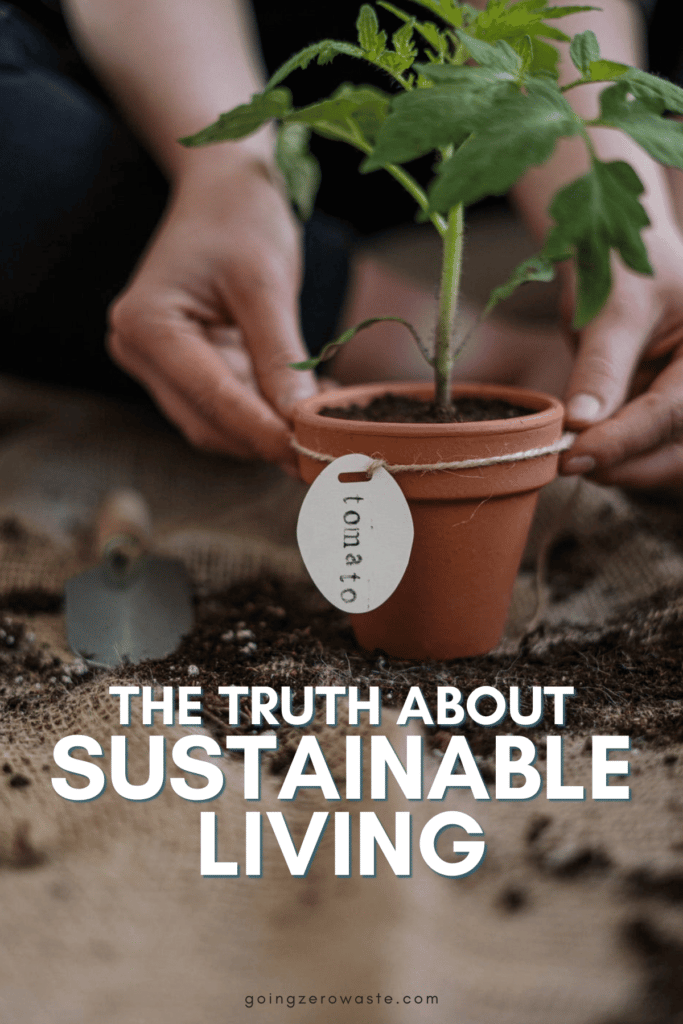
Table of Contents
what is sustainable living?
it’s not picture-perfect; it can be messy
I used to think that sustainable living meant having a farm or living off-the-grid in a beautiful log cabin in the woods. I had the impression that living sustainably meant being self-sufficient, growing your own food, and using renewable energy sources to power a house.
While these are worthy ideals, it’s certainly not necessary or a requirement for living a sustainable life. You don’t need to pack up your belongings and move to the mountains. You can practice sustainability even in the middle of the city.
I might be going against the grain here, but all it takes to be an environmentalist is caring about the planet. That’s it. Do you care? If you said “Yes,” then welcome!
Now, being a social media personality that helps people live a more eco-friendly life, I have to tell you — it’s not always Instagram-worthy. For me, sustainable living is about using what you have. That means old plastic ice cube trays, upcycled jars, old Ziploc bags in my freezer that house my compost – there’s so much that doesn’t fit into that 2015 #PlasticFree aesthetic and that’s OK. Real sustainable living isn’t a curated Instagram feed.
it’s not about buying eco-friendly products; it’s about conscious consumerism
Metal straws, reusable bags, and bamboo tumblers are all good. In fact, they’re important. However, eco-friendly products form only one part of sustainable living.
The key is to be a conscious consumer which means shifting your MINDSET. Do you really need to even buy that product at all? Can you borrow, swap, shop secondhand? We can’t buy our way into sustainability. We have to truly start shifting our habits. A conscious consumer thinks carefully about purchases, the whole life-cycle of a product, and does their best to choose an ethical option.
You can also familiarize yourself with the principles of minimalism which start with knowing the essentials and buying only what you need. Use what you have right now, but the next time you need a replacement, consider an eco-friendly alternative instead.
I really like how there are a lot of great product options nowadays, ranging from food to clothing and household items. However, not all “green” products are truly eco-friendly because of greenwashing, so it helps to do your research first!

it’s not JUST an individual effort; it’s also a community effort
When I served in my local government, my goal was to reduce litter and illegal dumping (a really big problem in my town!). I helped organize dump days and several citywide cleanups. Being a coastal town, it should come as no surprise that a lot of the litter was single-use plastic. The International Union for Conservation of Nature (IUCN) estimates that 8 million tons of plastic are dumped into the ocean every year.
Many people ask me, “Do individual efforts really make a difference?” After all, it’s really easy to dismiss one small action as insignificant. One of my favorite quotes from Margaret Mead is, “Never doubt that a small group of thoughtful, committed citizens can change the world; indeed, it’s the only thing that ever has.”
Taken altogether, our small actions can make a significant difference. But it doesn’t stop there. We have to take these practices outside our households and take part in collective action. Amplify your actions with others to create meaningful change in your town.
There are so many amazing groups and organizations that you can plug into like the Sunrise Movement, Surfrider or Sierra Club. If you can’t find any group nearby, you can create one within your community or at your workplace! With the support of a dedicated group, it’s possible to organize events like workshops, educational tours, and knowledge sharing sessions to promote your advocacy.
Once you feel more confident, you can reach out to businesses in your area and the local government to further push for sustainability in your town or city.
FAQs
how can I start to live sustainably?
Start small — identify areas in your life where you’d like to improve and educate yourself about what you can do to reduce your carbon footprint. Some choices you can make today are:
- Taking public transportation
- Buying from local farmers
- Composting food waste
- Shopping second hand
- Using reusable bottles and containers
With constant practice, you’ll gain a better understanding of these new concepts and will be able to apply them in other aspects of your life.
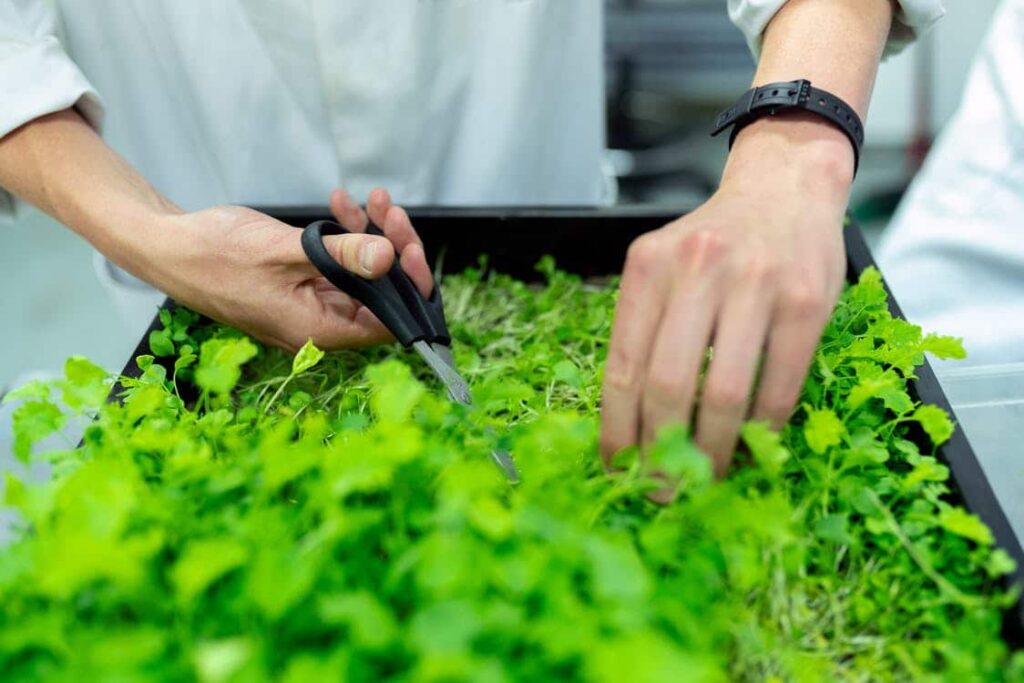
how do I know I’m doing it right?
Sustainable living looks different for each of us. The truth is that what works for others might not work for you. If you’re looking for a clear-cut set of rules to follow, you won’t find any.
What’s important is that you commit to doing the best you can. Work with others to make a lasting impact, and never forget why you care. This is a marathon not a sprint — each day is going to look different — but as long as you care, you’re an environmentalist. And, that’s the truth about sustainable living.

